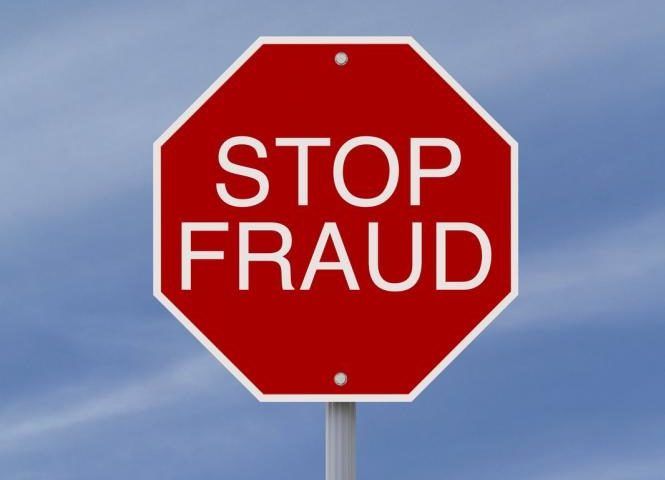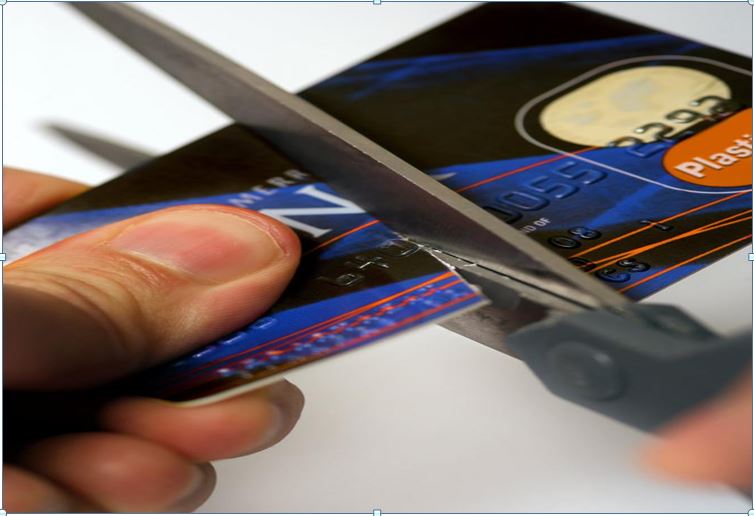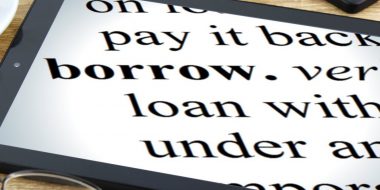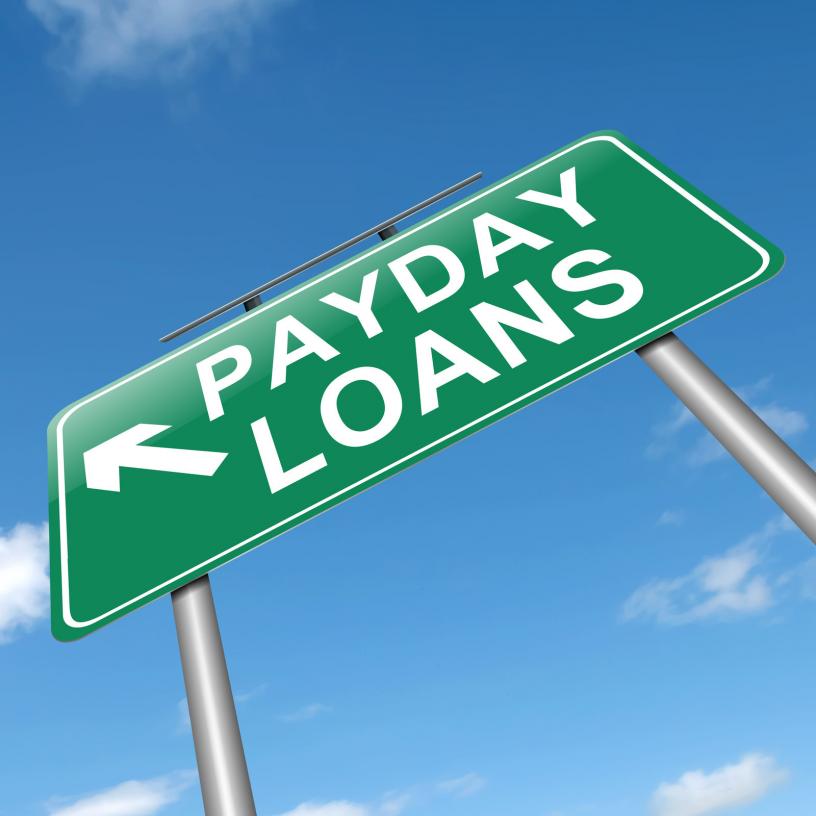
by Ajay oberoi | Consumer Proposal, Credit Counseling, Credit Repair, Debt Management
Budgeting For Holidays – Why it’s Important and How to Do It
Holidays are a great time to relax, retract and rejuvenate. These three R’s play a key role in anyone’s life and keep their sanity alive. That’s why the holiday season is considered as the happiest time of the year all over the world.
People leave no stone unturned while planning for the holidays. What they will do, what they will eat, where they will go, what they will buy and most importantly, what they will do to make these holidays different from last year’s. While all this seems pretty straightforward, it’s not all fun and games. Holidays come with a lot of expenses and no matter how strict you are with your money, you end up spending a little more than you would have liked.
Buying gifts, going for dinners, outings, picnics, and other things, all require you to spend a good amount of money. If you don’t have a plan to monitor your expenses during the holiday season, you will surely regret it later. That’s why budgeting for holidays is important.
Budgeting for holidays will require you to thoroughly assess your financial standing, including your debts if any, and your future expenses. If you are already going through a tough time financially, you should think about tossing the list of gifts out of your window.
Here are some effective steps that will help you in budgeting for holidays and be sticking to that budget.
1. Make a list of all expenses
The first thing you should do is make a list of all your likely expenses in this holiday season. This list will include all the gifts, traveling expenses, wrapping papers, donations, decorations, and holiday cards. You can also add the outings you have planned. This is a crucial first step in budgeting for holidays because it gives you an idea of what things you need to cover.
2. Set a spending limit
At this step, you need to determine how much money you can afford to spend on these holidays, especially Christmas. While budgeting for holidays, it’s important that you consider only the amount that you had as “extra savings” or the amount you had already set aside for Christmas.
3. Allocate money to each category of expenses
Once you know how much you have in hand, you can start dividing and assigning that money to different categories. For example, traveling can be counted as a separate category and the same goes for dining, gifts, and decorations, etc.
4. Make a shopping list
The next step in budgeting for holidays includes making a list of your holiday shopping. You must have some ideas in your mind about what gifts you want to give to specific people. The price range of these gifts should strictly not exceed your budget. Look for gift stores that offer sales.
5. Finally, monitor your spending
It’s time for you to shop according to that list and while you are at it, track your spending. You should carry your budget sheet with you, cross off the things as you buy them, and makes sure you are not exceeding your budget. This will also help you make adjustments if needed. Also, keep an eye on your budget sheet as you go about other expenses throughout the season.
Budgeting for holidays will help you a lot in keeping your finances in control while having the fun that you deserve this holiday season.

by Ajay oberoi | Bankruptcy, Consumer Proposal, Credit Counseling, Credit Repair, Debt Management
5 Tips on Avoiding Fraud with Better Financial Awareness
Every day, countless people around the globe fall victim to fraud. Identity theft, data breaches, online scams, and other financial frauds have unfortunately become quite mainstream. While new and improved technology has made things easier for consumers, it has also opened doors for fraudsters to design new ways to penetrate people’s financial details and rob them.
The fraud prevention authorities keep on working towards building a fraud-proof system, but they still haven’t been able to completely eradicate the scam mafia and frauds. To be fair to them, complete prevention doesn’t seem practically possible considering the growing reliance on money in today’s world.
However, even under these circumstances, better financial awareness and a sense of responsibility can protect people from becoming victims of fraud.
Following are some essential tips to avoid fraud and practice financial awareness:
1. Keep your financial information to yourself.
‘Phishing’ is a very common scam where fraudsters contact you via email or text claiming they are some retailers or government agencies and try to extract financial details from you. No matter what happens, you must not give out your sensitive financial information to anyone or any organization you don’t know. Your bank or a genuine credit card company will never contact you in this manner and ask for your information.
2. Don’t reveal your Social Security number.
One of the most crucial and yet less discussed tips to avoid fraud is this. A lot of people get emails or texts asking for their Social Security number for whatever pretended reasons. Some websites even ask you to enter that information. Don’t do it. These are mostly scams. An effective financial awareness involves the understanding of what information is confidential and what is the right place to use it.
3. Shred your ATM receipts.
One common mistake people do that puts them at risk of fraud is that they don’t shred their ATM receipts. Some people don’t even take the receipt out and some only discard it on the floor at the same ATM. Fraudsters can use these discarded receipts to carry out identity theft or account fraud.
4. Create strong passwords and change them frequently.
“12345” or “fluffy” is not going to do anymore. Today, when people are required to set passwords on a lot of websites and accounts, they usually go for a simple password and use the same everywhere. Cracking a simple password has become a lot easier and even the repeated passwords are easy to extract. Therefore, one important thing that shows financial awareness is keeping strong passwords that include a combination of letters, numbers, and special characters. Try to keep different passwords everywhere and also, change them often. This can be considered as one of the basic tips to avoid fraud.
5. Double-check the authenticity of an online shopping website.
Online shopping has become prevalent. Massive traffic on these websites has allowed scams to take advantage of it. There are a lot of fake shopping websites. Always opt for a reliable and well-established shopping website and before entering your personal information, check if the website is legit. No list of effective tips to avoid fraud can be completed without this point.
Scams will continue to operate and fraud will continue to affect people. But, you can still use your financial awareness to protect yourself. The above-mentioned tips to avoid fraud are surely going to help you.

by Ajay oberoi | Bankruptcy, Consumer Proposal, Credit Counseling, Credit Repair, Debt Management
Credit Card use has been widely accepted as the most efficient way of handling your urgent or emergency mobile purchase needs. Having a credit card gives you access to purchasing powers or any financial aid for any method requiring trading options. Having access to this kind of trading method gives the option of traveling without you needing to bring along huge loads of money. This method gives you the needed protection that you would prefer to have for your finances enables you to carry on with your day to day tasks without any added worry of where to store your cash or from any threat of your money being stolen. When in use of a credit card, you will have the advantage of using its perk, but it does not stay forever, for it comes with a limit.
What Determines the Limit of your Credit Card?
When your credit card limit is being considered, the bank bases it off the customer’s debt in relation to the customer’s known financial resources at any level. A customer’s credit profile is reviewed as a factor in determining your limit for they comprise of the client’s payment history, related income, and the method of use. Setting the client’s credit limit is not that permanent, for they can vary depending on the use and payment habits of the client, decreasing or increasing it in the process.
What connotes an increase in credit card limit, it might be related to the fact that your credit has improved and is now eligible for more borrows and in some cases the bank would contact you and inform you that you have made the necessary adjustments to qualify and ask you how you want to increase your credit limit funds. Your debt to credit ration might benefit from your unchanged spending habits providing a way for you to have an easy fall back in case of emergency situations. You would also be able to ask for an increase in the limit provided that you have a curated history of on-time bills payment. If you have had a positive impact on credit use then your company would notify you that they have increased your limit for your great participation.
How could your limit decrease? If you have been doing the opposite of what entails you to an increase in the limit, like not falling behind in the payment of your bills and constantly abusing the use of your card even though you have already reached the limit multiple times, then that would net you the credit card limit decrease. It is important for you to track your own credit limit and be able to review your credit card use as well as be able to communicate effectively with your credit card company.
With all these in mind, wanting a higher credit limit is now a very easy task to accomplish. It is important to understand your credit card options and manage your credit card spending habits to be able to build a positive credit score helping you out in the future.

by Ajay Oberoi | Consumer Proposal, Credit Counseling, Credit Repair
Wouldn’t it be good if all debt would just disappear? Debt can be so stressful, particularly if you’re trying to pay down your debt on a very small budget. When you do not have enough extra money, making debt payments could seem like a waste of savings, or even seem too impossible. Further, it’s also easy to get irritated when you have a big amount of debt and much of your payments go towards the interest.
Yet, you’re almost better off making even a small payment, instead of no payment at all. If you do not have any emergency fund or you’re barely scraping by and can’t even pay your existing bills, then you might need to concentrate on those concerns now. However, if you have any funds available, you must be paying off the debt. The following are ways on how to get out of debt with small payments.
SET UP AUTOMATIC DEDUCTIONS
If you got limited budgets, you might feel that small payments aren’t worth it. But, every small bit helps. Did you know that setting up an automatic deduction would stop you from falling into the trap of looking for diverse excuses not to make debt payments? Normally, automatic deductions are an excellent way to pay bills.
CREATE PAYMENT PLANS
If you like to get out of debt easily, especially with a limited budget, you need a plan. Begin by identifying how much debt you have and listing down the lenders whom you own money to. You can order your payments by which debt you believe needs to be paid off first. Then, you can identify how much you can avail to pay off every month.
Once you’ve identified how much you can pay every month, you need to determine how much of that total number will go to every loan. Paying off the high-interest loan in its entirety has lots of benefits; however, if you have a loan, which does not need payments yet, you must factor that in and perhaps pay off other loans first as well.
CHANGE SPENDING HABITS
Someway you got into debt, and there are some potential reasons. You might have debt like school loans, home mortgage and such debts are totally legitimate and necessary. Either way, you need to decide to stop spending today if you like to get out of debt faster. This denotes that even when a mortgage is a reasonable debt, you need to be proactive when it comes to paying off that certain debt and you need to be content not to go out or buy a bigger or costlier home. Regardless of whether you’re an impulse sender or careful spender, if you wish to be debt-free, then you need to select to pay the debt down rather than accruing more.
People oftentimes wonder when they must borrow money to pay off debt. If you have countless different debts, then you can consider consolidating the loans. Remember, having a limited budget should not stop you from paying off the debt you have; however if it can make it certainly tougher. These tips can help.

by Ajay Oberoi | Bankruptcy, Consumer Proposal, Credit Counseling, Credit Repair
Canadian homeowners have more negotiating skills than they think when we talk about the Canada Revenue Agency. That’s until the CRA has placed your property and placed a lien on it. Utilizing your home to deal with CRA all comes down to the right timing. If you have some equity in your home and you the CRA money, here are the steps to take.
Everyone knows that tax debt could be alarming; alarming because owing to the CRA money if you cannot pay will likely result in collection activities. Further, tax debt is one of the major reasons why people get behind filing as the money to pay isn’t there and they fear that once the returns are filed, CRA is going to come searching for the money. If you are aware that you have a tax debt, do not wait until the CRA catches up with you. Remember that you can beat them and get a plan, which will effectively deal with your CRA tax debt.
What Are the Options?
In case you didn’t know yet, you more options to deal with CRA tax debt when it has not started enforcement action. A good example of this is homeowners who have tax debt. Let’s say you have or you own a home, have a tax debt, at the same time the CRA puts a lien on the home, this will greatly lessen your options if you really can’t repay them on a monthly basis given that the CRA will become a secured creditor.
The challenge here is your probabilities of being able to make the consumer proposal are extremely lessened once the CRA has taken enforcement action, secured with a lien on your home for instance. The same goes for bankruptcy. If you’re holding the bankruptcy card in your pocket or hoping that filing for bankruptcy may seem like a means to get out of the tax debt, this as well would no longer be a viable option when the CRA becomes secured on the asset such as real estate.
The Faster You Deal with CRA Tax Debt, the Better
Don’t mind problems like financial planning and enforcement action. The presence of tax debt and the CRA collection action against you can lead to damage to your relationship with your family or along with lenders like your mortgage holder or bank, embarrassment at work, and even health issues if you become stressed and have some difficulty coping with the stress.
There’s no need to put yourself through this kind of situation. You will find companies, which can help you with your financial CAR tax debt problem. Selecting the right solution for you could be easier said than done; however, but not if you are aware of your options. Collaborating with a financial consultant employed by you to represent your interest is one great way to assess and check your options and develop your plan.
Remember, dealing with your tax debt before CRA catches up with you will allow you to have relief and move forward on a new footing. Any problem with CRA debt call GTA CREDIT at 416 650 1100

by admin | Consumer Proposal, Credit Counseling, Credit Repair
Let’s face it – money can be a devil at times and a savior at others. We all are told to acknowledge the importance of adequate money management throughout our lives to avoid the problems a lack of finance brings. That’s very crucial, without a doubt. However, some people might face a time they are in dire need of money, despite the sufficient money management they thought they were conducting.
There are plenty of loans available in the market to help you take care of your financial needs. However, almost all of them only allow borrowing a large amount and also have high-interest rates. What about when you need only a little amount of money? Well, that’s where payday loans come in.
A payday loan is basically a small loan that is short-term. You can acquire a payday loan to pay your urgent bills or whatever, and then you will be required to pay back the money. The name ‘payday’ is to suggest that you are supposed to return the money as soon as you get the paycheck on your next payday.
The payday loan industry has seen significant growth in recent years, but it has also received some serious criticism for various reasons. Nevertheless, payday loans are becoming more popular and they have their pros and cons. Let’s take a look at them.
Pros
Payday loans can be really useful.
When you need urgent financial assistance, you may find payday loans as the most suitable option. You can use the amount from payday loans to pay for due bills or any other expenditure that needs to be incurred urgently. You can return that small amount soon enough with your next salary. No matter how good you are at money management, some unforeseen circumstances in life may leave you with no other choice.
They are very easy to get.
The popularity of payday loans also has to do with their convenience. Almost anyone with a steady income, state ID, and a checking account can qualify for payday loans. You can expect to receive the amount within an hour or few hours of application and that can be considered as a huge plus. Some online companies also offer payday loans.
Even people with poor credit scores can get payday loans.
All the conventional loans require you to have a good credit score. That’s one thing that restricts people in times of an urgent need when their money management turns out not so effective. With payday loans, that’s not a problem as the lenders do not generally check the credit score of the applicant.
Cons
The terms of payday loans favor lenders.
Anyone who fails to comprehend the terms and agreement of payday loans can find themselves at a major disadvantage if something goes wrong and they are not able to pay back in time.
People often fail to meet the repayment terms.
The APR (Annual Percentage Rate) of interest on credit card loans is usually under 20 percent. In the case of payday loans, the interest averages to 300 percent when evaluated as APR. This means that payday loans are not a long-term solution and you must strictly avoid borrowing a bigger amount than what is absolutely needed.
It all comes down to personal preference. People who are confident of their money management and can easily meet the repayment terms can benefit from payday loans. Otherwise, other options should be explored.









